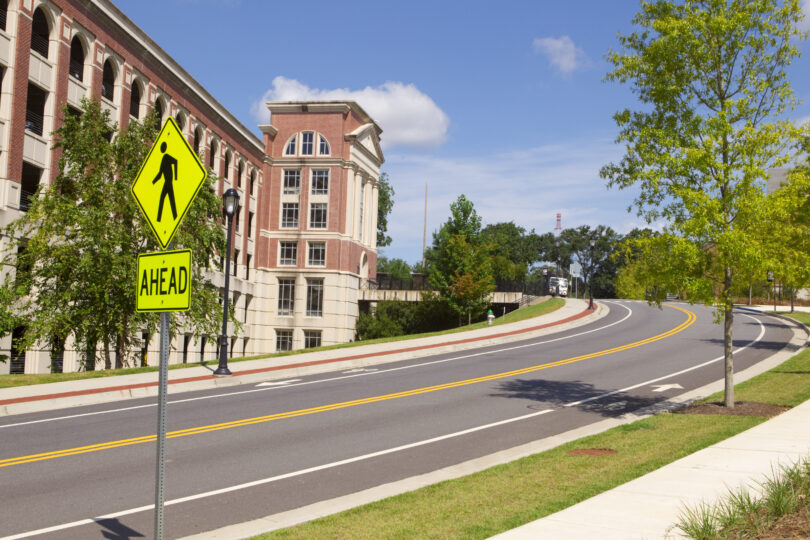This semester, Parking Services introduced several improvements and expansions. Columns recently spoke with Brett Jackson, associate vice president for auxiliary services, about how parking fees are used to support those changes and plans for future expansion.
Columns: Can you share a bit about the history of parking fees and how they’ve changed over time?
Jackson: The current parking priority system was introduced in 2003 and established how parking fees are collected. This system was designed to ensure permit holders would have a parking space in their designated area. This eliminated the prior system that was more of a “hunting license” for permit holders and offered no assurances for parking in designated lots. The new system was originally established with permit zones of $10/month, $20/month and $30/month. Despite rising inflationary pressures, the parking team has focused on taking actions that reduce the costs of providing parking and subsequently, fees have only increased once since then in 2008, when the rates rose by $10/month in each lot.
Columns: So, parking fees should have increased with inflation over that time, but they haven’t, correct?
Jackson: Correct. The costs to provide parking on campus have continuously risen, like the majority of other expenses, but parking prices have remained the same for over 15 years. The parking team has been very purposeful in seeking cost reduction opportunities, such as license plate reader technology, energy-efficient lighting in parking decks, and a formalized deck preventative maintenance plan aimed at paying a little now to avoid paying a lot later. The parking team also continuously seeks opportunities to increase additional revenue from special events and weekend parking.
Columns: How are parking fees used?
Jackson: It is important to understand that, as an Auxiliary unit, Parking Services does not receive any state financial support and instead operates fully through the funding received from parking fees. Those parking fees are reinvested directly back into the parking program. For example, fees may cover the cost of personnel, parking lot paving, seal-coating and re-striping, and parking deck maintenance including pressure washing and infrastructure repairs. Fees also allow for cameras in parking decks, equipment to protect permit holders, registration software, elevator maintenance and modernization, and enforcement vehicles and cameras. New parking—such as four phases of the College Station Rd. Park & Ride, the expansion of the Hull St. Parking Deck, and lighting upgrades—have also been supported by parking fees. Constructing the new West Campus Parking Deck, scheduled to be open in fall 2025, is also being funded from these fees.
Columns: The university has significantly increased the number of parking spaces this academic year. What are Parking Services’ plans for future expansion?
Jackson: Parking Services is always focused on opportunities to add parking. Nearly 900 spaces were added for fall 2022 and nearly 1,000 spaces were added for fall 2023. There are also plans for additional parking through expansion of the current Park & Ride, construction of the deck on West Campus, and the addition of new Park & Ride locations near the Veterinary Medical Learning Center on College Station Rd. and off South Milledge Ave. The parking team will continue to review more locations for future parking, including additional parking decks.
Columns: Are you seeing any trends related to student demand for parking?
Jackson: Parking demand has changed dramatically post-pandemic. In fall 2019, we received 26,217 requests for parking permits and were able to support approximately 89% of those requests. This fall, we have received 30,719 requests for permits and have been able to support approximately 78% of those requests. The total demand as a percentage of total enrollment in fall 2019 was 67% and for fall 2023 it is now 74%. These numbers demonstrate that our parking challenges are caused not only by an increase in student enrollment, but also by a greater percentage of students requesting permits.
Columns: What kinds of efforts has the university made to offset parking fees for faculty and staff?
Jackson: When the university initiated the parking priority system, funding was added to the base pay of every position specifically to offset the increase to parking permits. Additional funding was added to the base pay when the parking permit fees last increased in 2008. During the time most in-person campus operations were shut down due to COVID-19, monthly parking permit fees were not collected.








